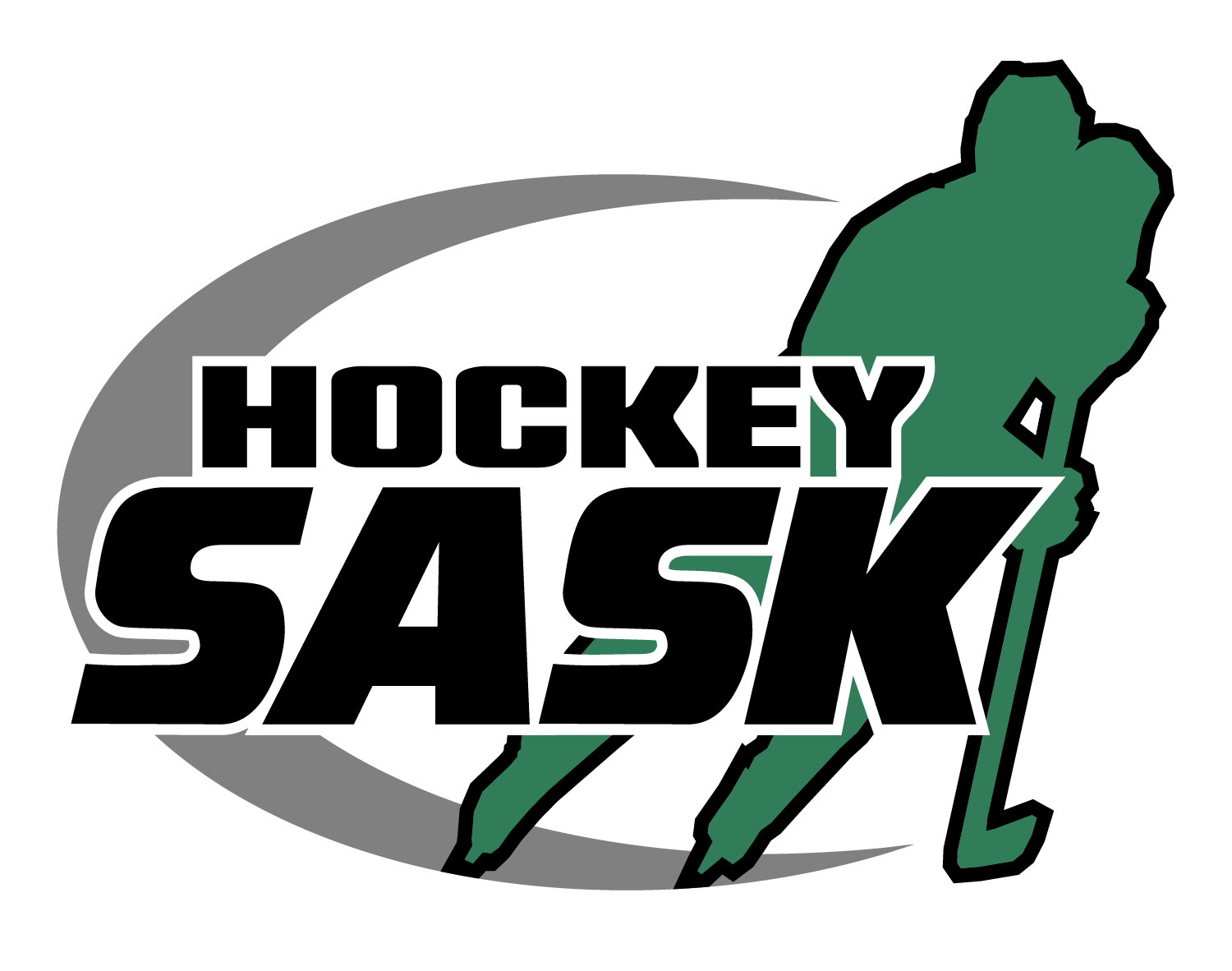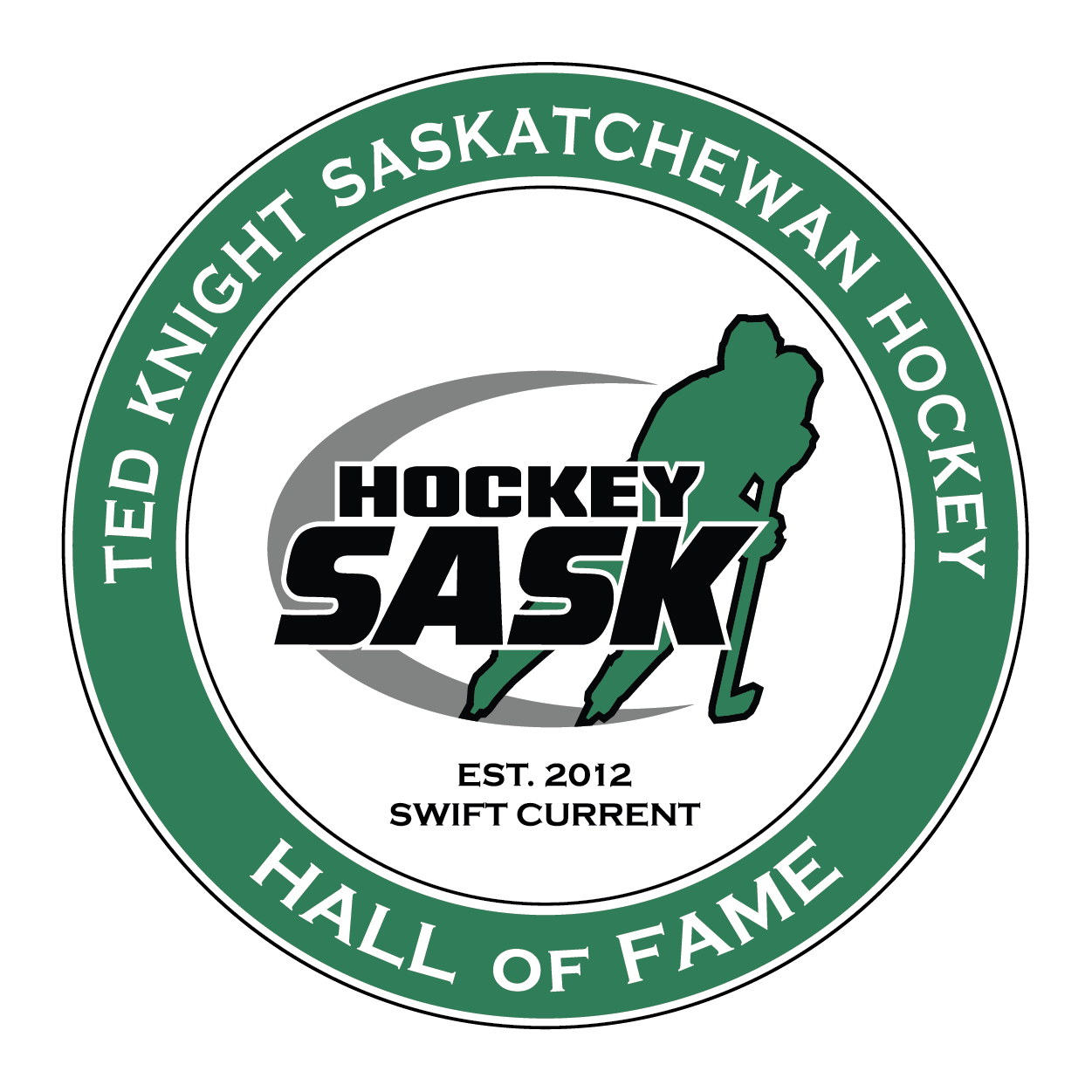Girls’ Hockey Team on Big River First Nation Led by Indigenous Role Model
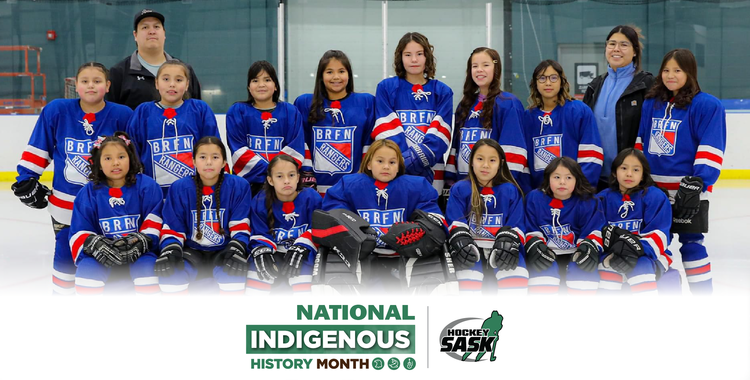
Jun 21
2023
By Thomas Piller via Hockey Saskatchewan
BIG RIVER FIRST NATION, Sask. – Simply being on the ice gives Kristen Bear-Wuttunee confidence as she coaches girls’ hockey on Big River First Nation (BRFN) in northern Saskatchewan.
“I am not really much for speaking. It is different on the ice, though. … I am a different person,” she said.
The 32-year-old volunteer has embraced being behind the bench and shines as a role model for female youth in a Minor Hockey Association (MHA) that’s making significant strides compared to when Bear-Wuttunee started playing the sport back in Grade 5.
“There was no female hockey at all here. That is what I remember from the beginning. … There was an outdoor rink outside the school, and I liked the game. I had asked my parents if I could keep playing and I played house league in (nearby) Shellbrook,” Bear-Wuttunee said.
“I remember it being hard when we were young because there wasn't much female hockey and there were tournaments where you had to use your own community so we would have to pick up players by asking some girls here like, ‘Can you skate?’ And then now we have to host tryouts for female players to make teams.”
This past season, a multisport facility opened its gate to future generations of BRFN youth with the Jim Neilson Sports Complex’s grand unveiling in September 2022. Despite this tremendous milestone, the grand opening was bittersweet for Bear-Wuttunee as her father Berno Bear passed away before seeing the new indoor rink in action.
“(Berno) would have loved it. He was so excited. He was still here when they were just starting to build it … and he was one of the ones that mainly pushed for that to happen here,” Bear-Wuttunee said.
“(Berno) was a really big advocate for the youth here and to keep them busy in any kind of sport. But he was really big on female hockey because my sisters and I loved the game, and he would push for us to keep going.”
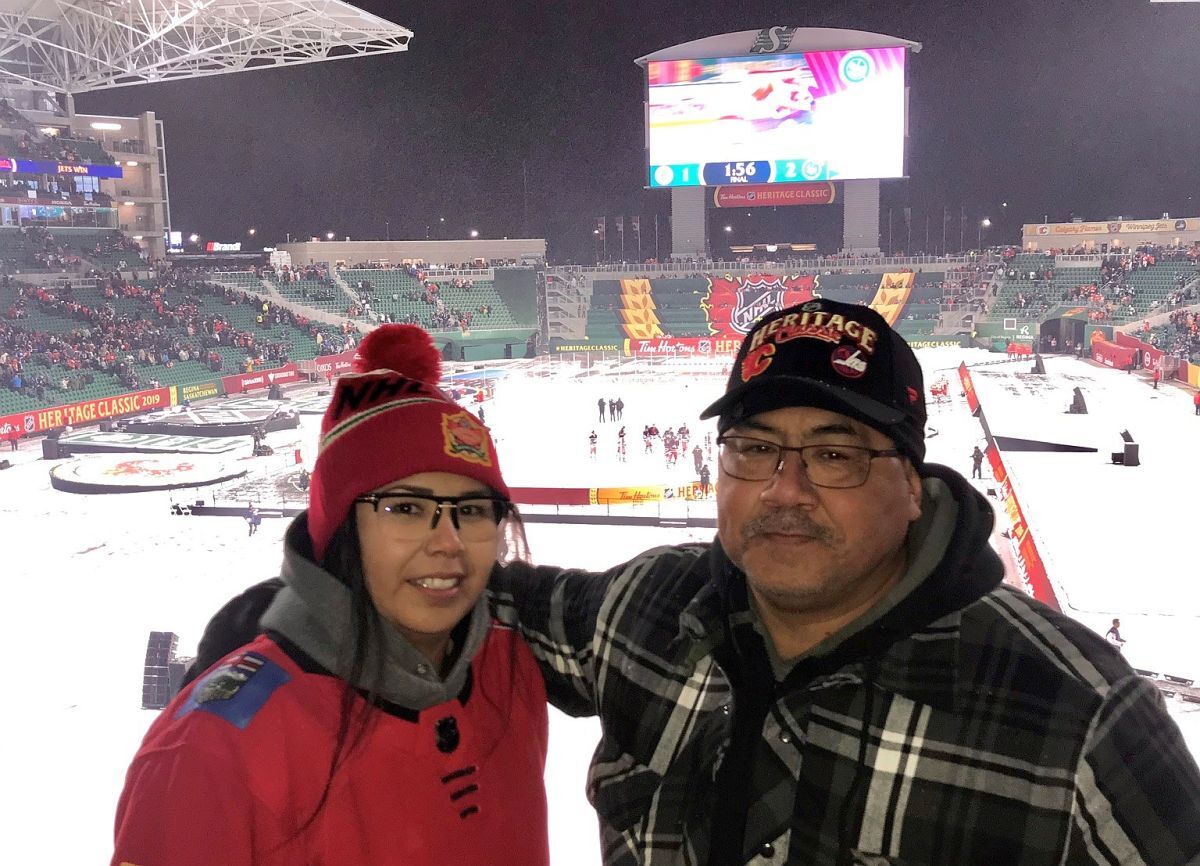
With the introduction of the Jim Neilson Sports Complex – which is named after the late Indigenous trailblazer who played 16 NHL seasons – the First Nation is setting a new standard with the integration of sports and education, thus creating a safe place where children can not only learn new skills but also grow and thrive.
“(Students) have school hockey so the only way they can attend that is if they're coming to school every day and making their grades. ... I kept that going into my (team). They had to be doing good in school,” Bear-Wuttunee said.
“It kept them going well in school and then they knew if they were doing that then they could come to hockey. And the attendance was really good for hockey too so it benefited both for them.”
The MHA in the community of roughly 4,000 people has obstacles to overcome with many participants needing hockey equipment and transportation as well as coaches requiring certification. Bear-Wuttunee had multiple roles as a First Nation coach which also included equipment manager, transporter, and messenger.
“Transportation-wise … the band has community vans that we can use, and it was a matter of having to do the paperwork and all that. (For) the communication with the parents and caregivers, the main way was a Facebook Messenger group and sometimes even with that, you couldn't even get through to people,” Bear-Wuttunee said.
“Basically going house to house or getting other parents to pass the messages along (worked). I would print out a paper copy of schedules for each one and then, at practices, give those to them for each new month.”
Both the bench boss and husband Lyndon Wuttunee, who stepped up as an assistant coach, said the 2022-23 season was a challenging one as their all-girls team predominately got outscored in the mixed league, but they encouraged the young players to improve at their own pace.
“We have skaters that are stronger than others. … The improvement from a lot of the first-year skaters this year was pretty amazing,” Lyndon Wuttunee said.
“(Coaching is) a lot of work. It is different. It is challenging at times but in the end, it's also rewarding to see the players and everyone progressing the way they did.”
Bear-Wuttunee said she loves everything about coaching but being around all the different personalities of her players was a highlight. Three members of the Female Under-11 BRFN Rangers’ defensive core are shining examples of this benefit.
BRFN RANGERS ON PLAYING HOCKEY:
DEVON JOSEPH
“You put in all the work and it’s teamwork ... that’s what I like about it.”
KADENCE BEAR
“I love that it makes us stronger skaters.”
DELILAH JOSEPH
“(I play defence) so I don’t have to skate up.”
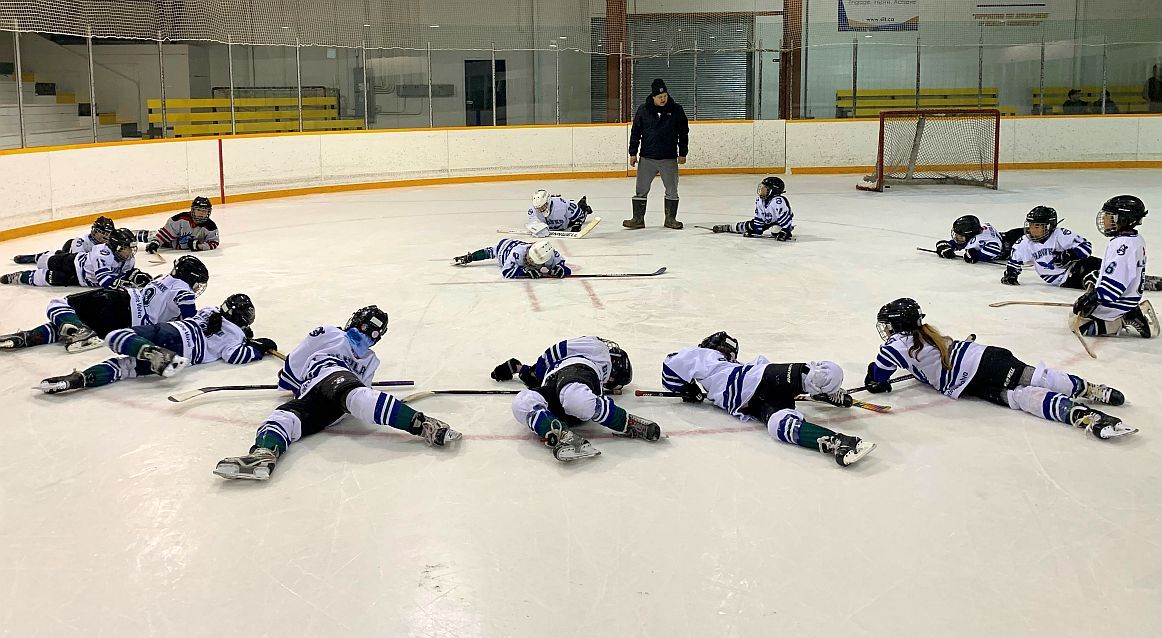
While reflecting on National Indigenous History Month, Bear-Wuttunee said First Nations culture was a big part of her upbringing and she shares this with the kids she coaches.
“I grew up strongly around it, all of it. It is … making sure (players are) staying humble and being kind as well as don't be mean about anything to anyone if someone's a little behind than what other people are,” Bear-Wuttunee said.
“(National Indigenous History Month) makes me proud to hear it. To have that recognition. … It is really nice to see and to hear about (during) the month of June and to have these things you see playing on commercials and even the hockey.”
Following two seasons impacted by the COVID pandemic, BRFN’s recent registration numbers have not only recovered but increased 72.73% over the 2019-20 season. Notably, there were less than a dozen more boys than girls registered throughout the MHA’s 2022-23 season.
“(Hockey needs) more female ... just anything female. Like coaches, managers, and players to make it more welcoming,” Bear-Wuttunee said.
“I think they’re looking into making more teams (in the MHA) for next year.”
Also of note, BRFN was recognized as the inaugural recipient of Hockey Saskatchewan’s MHA of Distinction Award for its outstanding contribution to the minor hockey landscape during the 2022-23 season. The Award is a testament to the hard work and dedication of the BRFN’s hockey community and its dedicated volunteers.
For more stories made in celebration of National Indigenous History Month, please visit Hockey Canada online.
Related Articles

Around the Rink: Body Checking with Kim Perepeluk – WATCH

Hockey Saskatchewan Membership Presentation: December – WATCH

Kipling Royals Score with Food Drive Highlighting Adam Herold Legacy

Hockey Saskatchewan Membership Presentation: January – WATCH







